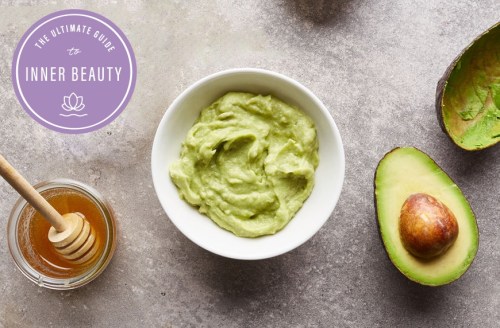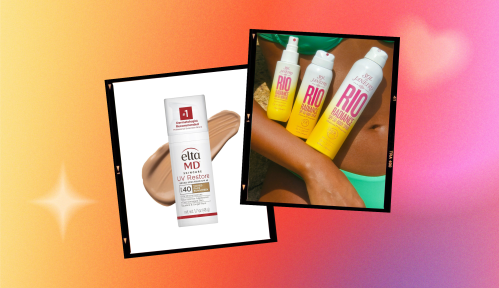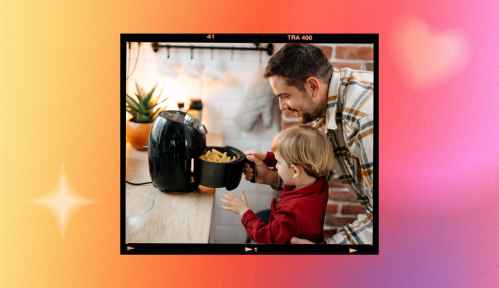Telling you to put food on on your face is probably going directly against what your parents told you to do as a young kid. (Am I right?) The thing is, so many good skin-care products these days utilize what’s on your plate (slash in your blender) because it’s actually beneficial for your skin. So why not have a little fun with your beauty regimen and slather on pantry staples for a complexion boost? (Plus, Salma Hayek does it, so…)
“Why not skip the middle man and put the source on your face?” says Purvisha Patel, MD, a dermatologist and founder of Visha Skincare. “Most ingredients in skin care are derived from plants, fruits, and vegetables, so they’re definitely beneficial to put on your face directly.”
Of course, this means getting messy and experimenting in the kitchen—but it’s for a good cause (AKA your glow). It’s especially ideal if you’re on the clean beauty train and are looking to use the least amount of chemicals possible in your skin-care regimen. “Putting food directly on your skin can be great because it’s the purest way to experience ingredients—there are none that are hidden,” says Katya Pavlik, skin therapist at facial shop Heyday.
Certain ingredients you might typically cook with can even work as acne fighters. “Incorporating superfood ingredients within your skin-care regimen provides multiple skin-care benefits to your complexion,” says Naissan Wesley, MD, FACMS, Arbonne scientific advisory board member. “The nutrient-rich properties promote blemish-free skin, healing and repairing benefits, and anti-pollution properties.”
Looks like some of your fave bowl foods could give your serums a run for their money.
Keep scrolling for the top superfoods to grab at the grocery store for your glow.
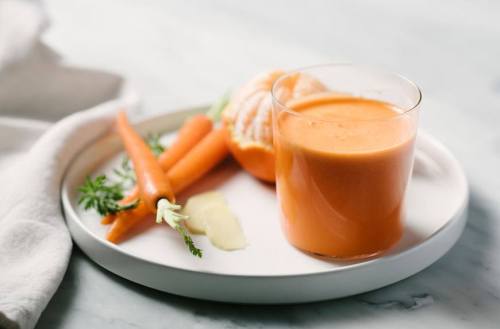
Carrot juice
Carrots are the OG source of beta-carotene, which works wonders on your complexion. “Topically, carrot juice can help combat sun damage as it contains falcarinol, an antioxidant,” says Dr. Patel.
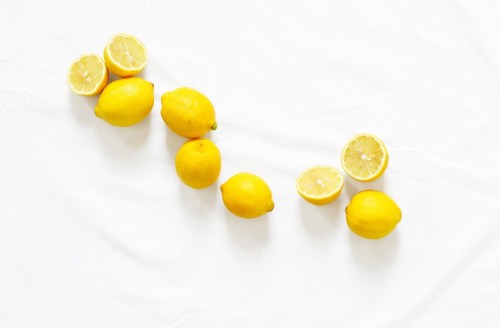
Lemon
Your fave water booster is actually good for hyperpigmentation. “Lemon juice applied directly to the skin delivers astringent effects, decreases oil, and provides the antioxidant vitamin C which could help lighten sunspots or discoloration,” says Dr. Patel.
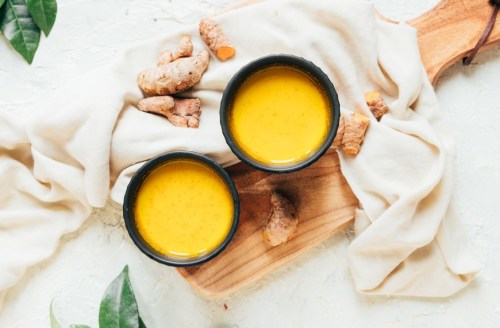
Turmeric
Of course, the do-it-all anti-inflammatory has the same healthy prowess it does in food as it does for your face. “This Indian spice has anti-inflammatory properties and helps with evening the skin tone,” says Dr. Patel. This also makes it good for breakouts.
This Parisian Skincare Brand Is Launching in the United States for the First Time—Here’s What a Derm Wants You to Know

We’re Calling It: Cleansing Balms Are the Face Wash of the Future—Here Are 3 to Add to Your Cart

This Is the One Product That Scarlett Johansson Always Keeps in Her Purse and on Her Bedside Table

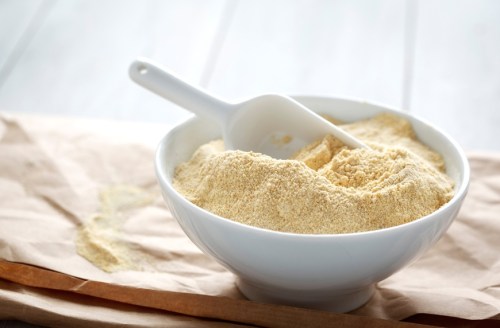
Chickpea flour
Sometimes, your everyday drugstore exfoliating scrub can have some abrasive ingredients in it—but chickpea flour’s a gentle way to get the job done. “When made into a scrub or paste, this flour is a great exfoliant and also helps with oil production,” says Dr. Patel.
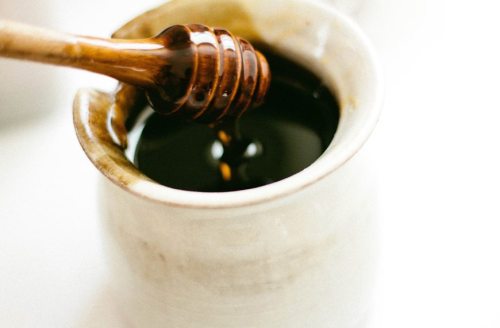
Honey
The sweet stuff is a natural antibiotic and powerhouse healer. “Honey’s one of the best moisturizers you can use on your skin,” says Dr. Patel. “It actually helps your skin absorb and lock in moisture while soothing irritation and redness.” It’s also good for acne.
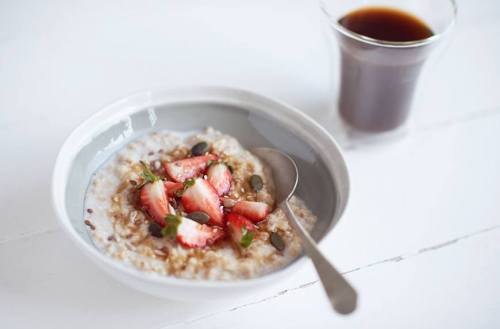
Oats
They’re delish for breakfast, yes—but can also be used as a mask. “Oats are a natural skin soother,” says Dr. Sobel. “It’s a great solution for people with rashes, skin irritation, and inflammation.” Dr. Patel adds that it also helps retain moisture in the skin—so save some from your bowl!
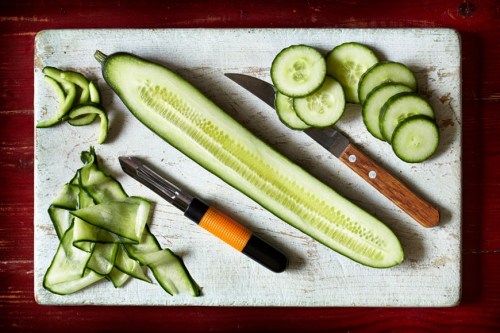
Cucumber
There’s a reason that the self-care mascot is a woman with cucumbers over her eyes. “They’re a very water-heavy food, so they help with hydration,” says Dr. Patel. “The cooling helps with vasoconstriction AKA puffiness.” Personally I’ll need these on hand for the a.m. pre-coffee time.
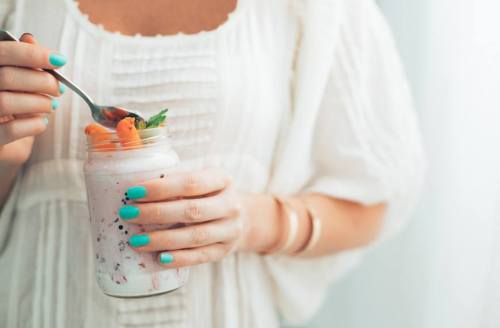
Yogurt
A good cup of yogurt gives your gut a healthy dose of probiotics. Slathering it on your face does the same for your skin. “Yogurt’s good for reducing inflammation and redness,” says Pavlik.
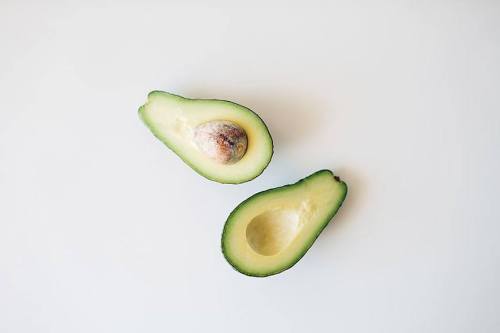
Avocado
You guessed it—everyone’s favorite superfood-slash-toast topping isn’t just healthy for your diet. “Avocados are the best for your skin because the fat in them replenishes your complexion’s fatty acids,” says Pavlik—which is good for your skin’s barrier. So next time you go grocery shopping, get a little extra for your skin-care routine.
You can also sip on these smoothies for healthy, glowing skin. And to treat things from the inside out, these are the best supplements for your skin.
Sign Up for Our Daily Newsletter
Get all the latest in wellness, trends, food, fitness, beauty, and more delivered right to your inbox.
Got it, you've been added to our email list.
